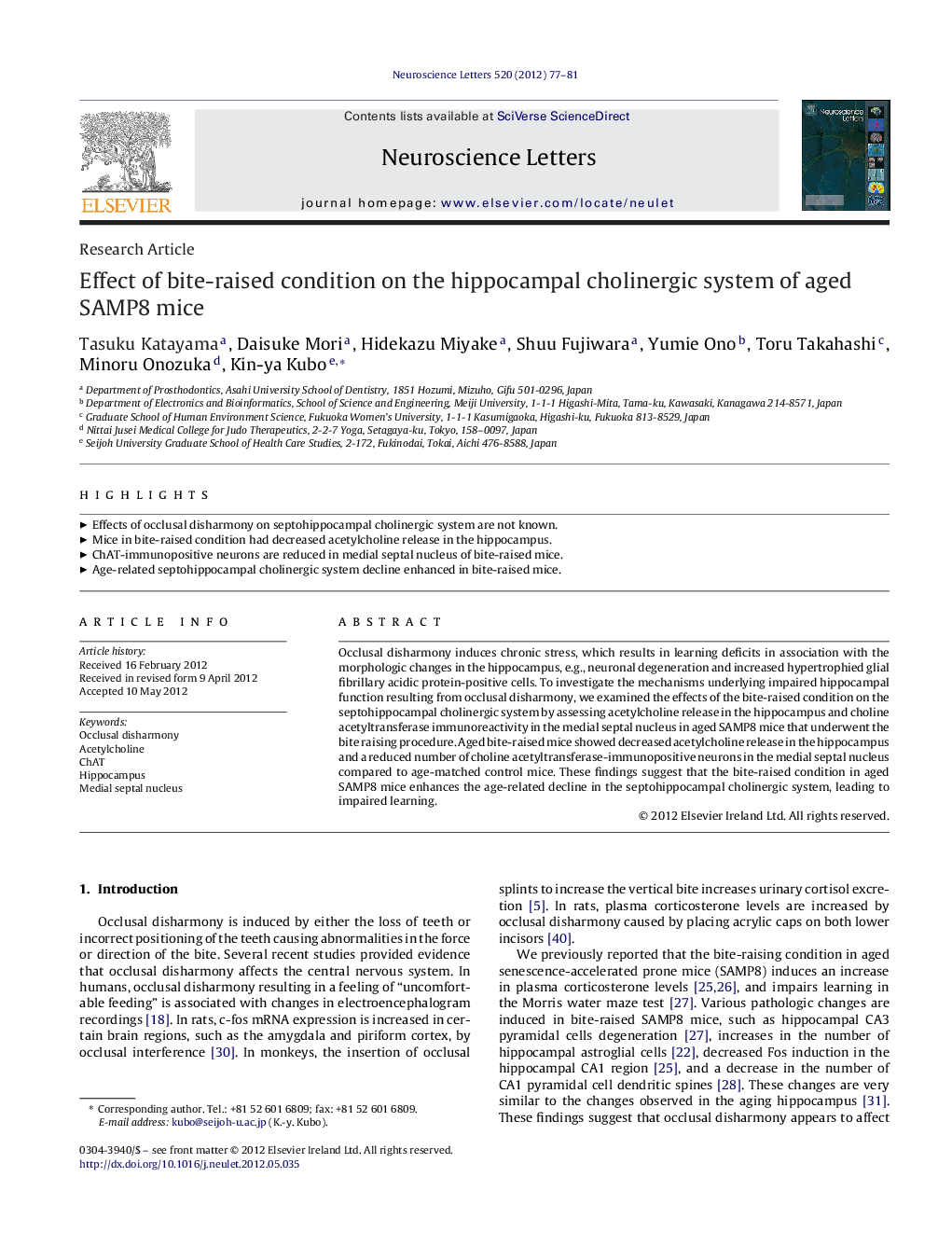| Article ID | Journal | Published Year | Pages | File Type |
|---|---|---|---|---|
| 4344481 | Neuroscience Letters | 2012 | 5 Pages |
Occlusal disharmony induces chronic stress, which results in learning deficits in association with the morphologic changes in the hippocampus, e.g., neuronal degeneration and increased hypertrophied glial fibrillary acidic protein-positive cells. To investigate the mechanisms underlying impaired hippocampal function resulting from occlusal disharmony, we examined the effects of the bite-raised condition on the septohippocampal cholinergic system by assessing acetylcholine release in the hippocampus and choline acetyltransferase immunoreactivity in the medial septal nucleus in aged SAMP8 mice that underwent the bite raising procedure. Aged bite-raised mice showed decreased acetylcholine release in the hippocampus and a reduced number of choline acetyltransferase-immunopositive neurons in the medial septal nucleus compared to age-matched control mice. These findings suggest that the bite-raised condition in aged SAMP8 mice enhances the age-related decline in the septohippocampal cholinergic system, leading to impaired learning.
► Effects of occlusal disharmony on septohippocampal cholinergic system are not known. ► Mice in bite-raised condition had decreased acetylcholine release in the hippocampus. ► ChAT-immunopositive neurons are reduced in medial septal nucleus of bite-raised mice. ► Age-related septohippocampal cholinergic system decline enhanced in bite-raised mice.
